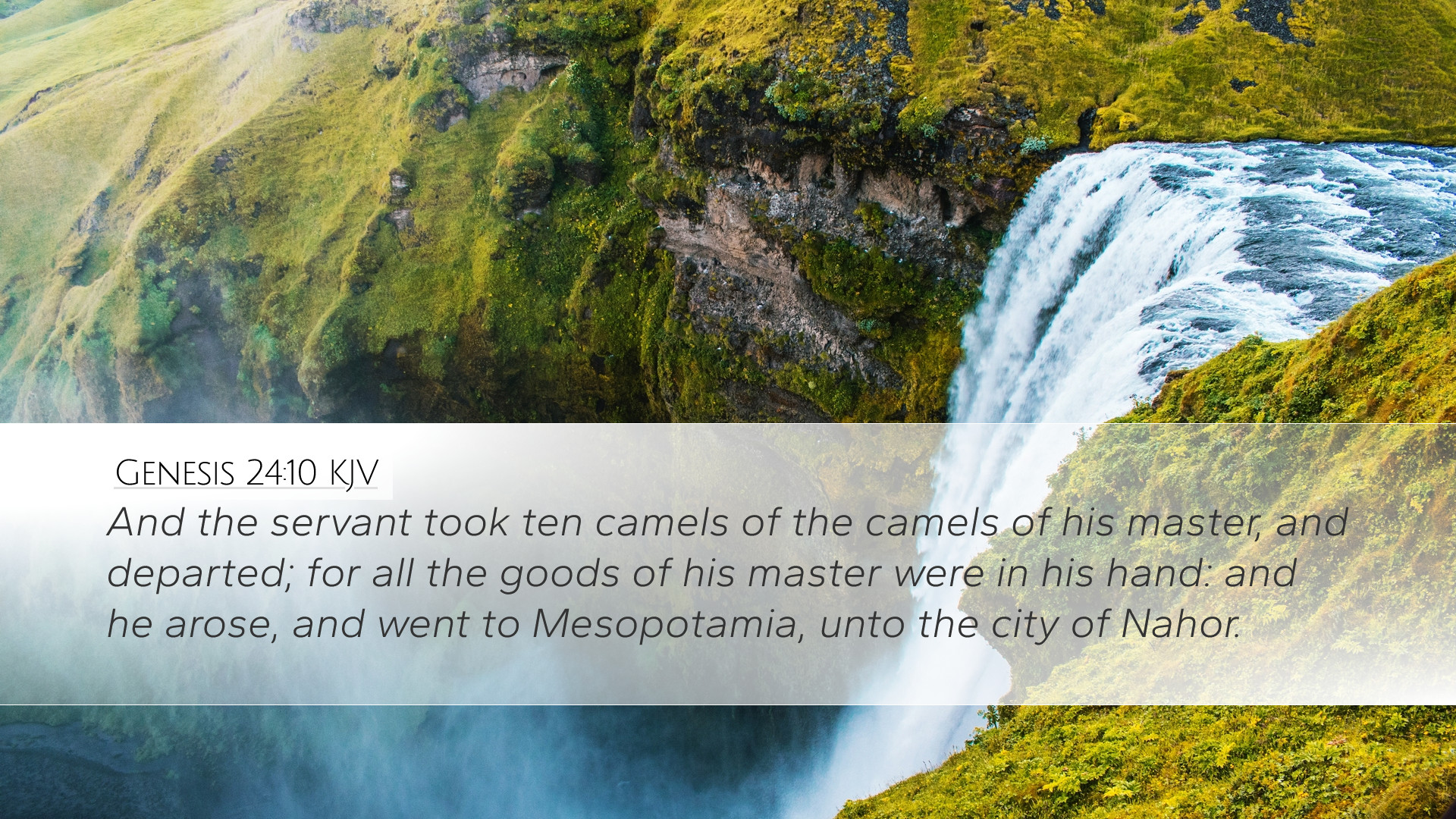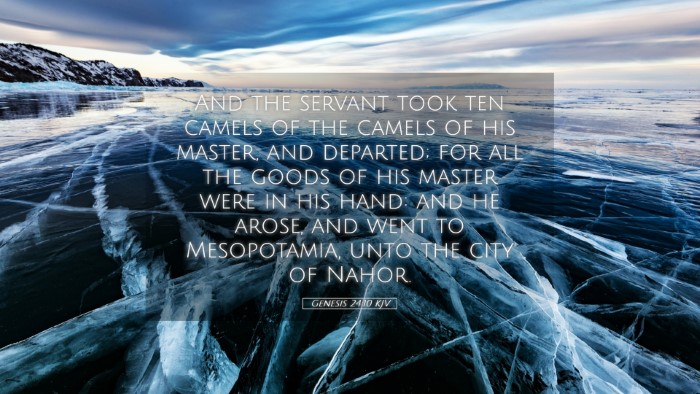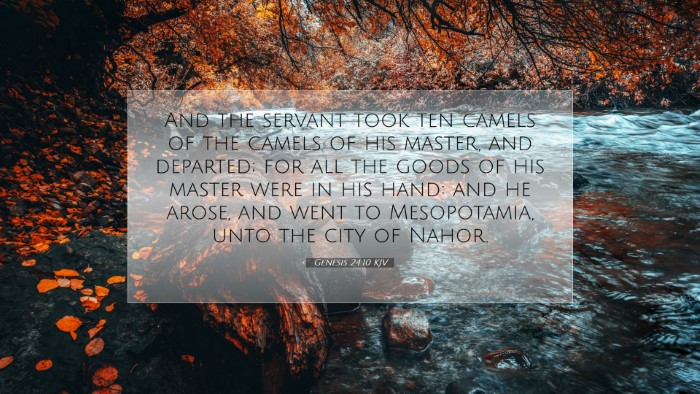Commentary on Genesis 24:10
Genesis 24:10 states: "And the servant took ten camels of the camels of his master, and departed; for all the goods of his master were in his hand: and he arose, and went to Mesopotamia, unto the city of Nahor."
Introduction
This verse opens a significant chapter within the narrative of Genesis, highlighting the importance of divine providence and human agency. The emphasis on the servant's preparations and journey serves as a foundation for understanding God's workings in the selection of a bride for Isaac, Abraham's son.
Contextual Background
To fully comprehend this passage, one must first recognize the placement of this event within the broader narrative of Genesis. The search for a wife for Isaac is a pivotal moment not just for Isaac but for Abraham's lineage and God's covenant promise. The servant's journey to Nahor not only reflects human actions but also exemplifies faith in God's guidance.
Insights from Commentaries
-
Matthew Henry:
Henry emphasizes the diligence and responsibility of the servant in preparing for the task entrusted to him by Abraham. The number of camels (ten) symbolizes abundance and readiness for whatever the journey may entail. The servant's preparations reflect a blend of faith and foresight, demonstrating his understanding of the weight of the mission.
-
Albert Barnes:
Barnes draws attention to the significance of Mesopotamia as the destination. This region held cultural and familial connections to Abraham. He clarifies that the selection of this location illustrates Abraham's desire to maintain the covenant and the chosen lineage. The goods carried by the servant signal the promises of God’s provision that accompany obedience.
-
Adam Clarke:
Clarke elaborates on the spiritual symbolism present in the journey. The act of taking camels not only highlights physical travel but represents the journey of faith and reliance upon God’s providential hand. The use of camels suggests a readiness for any unforeseen circumstances, echoing the themes of preparedness and divine selection in the unfolding story of God’s people.
The Servant’s Mission
The servant's actions are a clear demonstration of preparation, obedience, and expectation. His deep understanding of Abraham’s wishes and the specific instructions he likely received reflect not only loyalty but also a profound sense of duty. He was tasked with finding a spouse for Isaac, which speaks to the importance of family and covenant in the ancient Near Eastern context.
Symbolism of the Ten Camels
The number of camels is not coincidental. In the customs of the time, owning a large number of camels indicated wealth and status. Additionally, the camels serve as vehicles of transportation not only for the servant but also for the gifts that would be presented to Rebekah's family. These camels symbolize the readiness to engage in a serious commitment and convey the significance of the mission entrusted to the servant.
Divine Providence
This verse underscores a critical aspect of the Biblical narrative: God's providential care over His people. The servant sets out with the knowledge that he is part of a larger divine plan. His journey to find Isaac a wife is underpinned by the trust that God will guide his steps. Both the servant's faith and the journey ahead typify the essential blend of divine providence and human action.
Application for Today
For pastors, students, theologians, and Bible scholars, the themes in Genesis 24:10 offer several applications:
- Faithful Stewardship: Just as the servant was entrusted with his master’s mission, believers today are called to be faithful stewards of the responsibilities God has placed in their hands.
- Preparedness for God’s Calling: The meticulous preparation of the servant serves as a reminder of the importance of being spiritually and practically prepared to answer God’s call.
- Trust in God’s Provision: The camels represent the abundance of God's provision, reminding believers to trust in His resources for fulfilling their missions.
- Covenantal Relationships: The narrative highlights the significance of familial and covenantal relationships, encouraging modern readers to consider their commitments and relationships within the body of Christ.
Conclusion
Genesis 24:10 is much more than a simple travelogue; it encapsulates deep theological insights surrounding God’s faithfulness, the importance of human agency, and the covenantal relationship that defines the people of God. By examining the texts through the lens of established commentaries, we enter into a rich conversation about the ways God works through ordinary means to accomplish extraordinary purposes.


